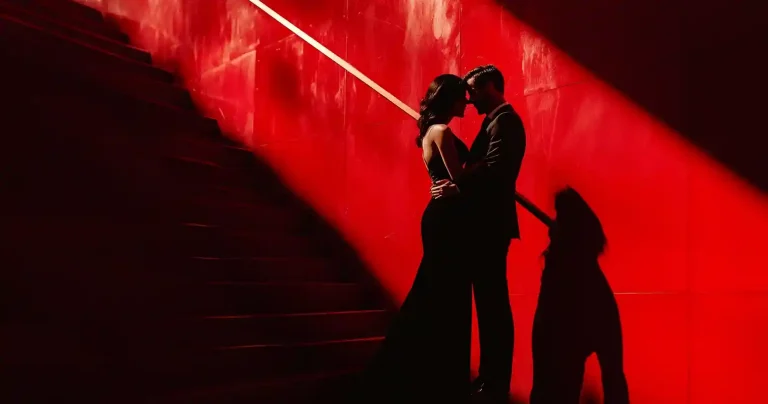Every great fiction book starts with an idea—a spark that ignites your imagination, flies through your fingers into your keyboard, and sets your word count on fire.
But let’s be real: finding that perfect idea can feel like waiting for lightning to strike. You may even find yourself wondering if inspiration is even a real thing.
The truth is, you don’t need a muse to whisper sweet nothings into your ear. You need tools, strategies, and a little imagination.
In this guide, I’ll break down how to brainstorm ideas that excite you, resonate with readers, and set you on the path to writing your fiction masterpiece. By the end, you’ll have plenty of actionable steps to find and refine your next big idea.
Before we dive in, this post also includes insights straight from The WriteTreat—an exclusive mentorship series for authors hosted with bestselling fantasy author Rachel Aaron, whose books have sold over half a million copies worldwide. Alongside Rachel’s expert advice, we’ve included real quotes and moments from the monthly WriteTreat Zoom calls with working fiction authors who are actively building books and careers. It’s not theory—it’s the real stuff writers wrestle with and win at.
Start With What Excites You
The best ideas often come from the things you’re already passionate about.
Think about your favorite books, TV shows, or movies. What do they have in common? Is it the edge-of-your-seat tension of a thriller? The intricate world-building of a fantasy epic? The quirky, lovable characters in a rom-com?
When you focus on what excites you, writing becomes more enjoyable—and readers will feel your enthusiasm.
Consider how your personal interests can inspire your story. Love hiking? Imagine a mystery novel set on a dangerous Appalachian trail. Obsessed with true crime podcasts? Write about a rookie journalist uncovering a decades-old murder in their small town.
Passions can also be smaller, everyday things. Maybe you adore coffee shop culture. Suddenly, you’re writing about a barista who discovers they can read customers’ futures in latte foam.
Your idea doesn’t have to be monumental—it just needs to excite you.
“Sometimes first books have problems that can’t be fixed… it’s absolutely possible to overwork your idea into something that was good into something that is bad.”
– Rachel Aaron, The WriteTreat Zoom sessions
Sidenote: Passion Fuels Process
One of the best lessons I’ve learned—thanks to Rachel Aaron’s 2k to 10k: Writing Faster, Writing Better, and Writing More of What You Love—is this: you need to be genuinely excited about your fiction book idea before you start writing.
If it’s not keeping you up at night, sparking endless possibilities, and making you wonder how far you could take it, it might not have enough energy to carry you through an entire book.
Passion fuels the process, and without it, even the best ideas can fizzle out.
Ask ‘What If?’
One of the most powerful tools in a writer’s arsenal is a simple question: “What if?”
It opens the door to endless possibilities, and the best part is there’s no wrong way to use it.
- “What if humanity stopped aging overnight?”
- “What if someone’s dreams began predicting real-life events?”
- “What if an alien crash-landed in a small town and had to blend in as a high schooler?”
“Every great book starts with a ‘what if’, but what makes it work is how personal it becomes. When your world is just bursting with giant ideas, that’s usually a sign you’re onto something.”
– Rachel Aaron, The WriteTreat Zoom sessions
This approach helps you think outside the box.
Consider how classic stories have used this technique:
- Jurassic Park is essentially, “What if scientists brought dinosaurs back to life?”
- Stephen King’s It asks, “What if a small town was haunted by a shape-shifting monster?”
Start jotting down your own “what if” questions. Don’t overthink them—let your imagination go wild. Even the most ridiculous idea could be the seed of something incredible.
My Favourite Flavour of “What If?”
For me, “what if” is more than just a brainstorming tool. This may sound a little wild, but hear me out. I remember things. Even if they didn’t happen, or maybe they did. Who knows?
You know that line from Star Wars: “A long time ago, in a galaxy far, far away” Well, I apply the ultimate “what if.” What if I’m not a one-lifetime, YOLO being? What if I’ve been there? What would I remember? What might’ve happened? What feels real?
I’ve come up with some epic ideas like this—crazy, amazing sci-fi or fantasy worlds that feel as real as if they actually happened (because maybe they did!). This isn’t just my favorite big idea hack; it’s like tapping into a hidden reservoir of fiction book idea gold.
Mix and Match Ideas
If your creative gears are stuck, try smashing two unrelated ideas together.
Some of the most memorable stories come from unexpected combinations.
- Pride and Prejudice… with zombies? Genius.
- A dystopian competition paired with reality TV? Hello, The Hunger Games.
To use this method, pick two things you love and see how they might intersect.
Imagine a murder mystery set during a reality cooking competition. Or a fantasy epic where dragons exist alongside futuristic technology.
The beauty of this technique is its unpredictability—you never know what you’ll come up with until you start mixing.
When J.R.R. Tolkien combined his love of language, mythology, and epic storytelling, he didn’t just create a story—he created a legacy. Your mix might not result in The Lord of the Rings, but it could result in something uniquely yours.
Look to History and Mythology
History and mythology are goldmines for story inspiration. They’re packed with drama, larger-than-life characters, and twists that rival the best thrillers.
Reimagine a historical event with a twist.
- What if the sinking of the Titanic happened in space?
- Or what if World War II was fought with dragons instead of planes?
History provides the foundation, and your imagination builds the skyscraper on top of it.
Similarly, mythology is timeless and ripe for reimagining. Stories like the Iliad or King Arthur have been retold countless times because they’re universal.
Take a familiar myth and make it fresh. Neil Gaiman’s American Gods brought ancient gods into modern-day America with stunning results. What if you did the same with an underexplored mythology, like Slavic or Polynesian legends?
Draw From Personal Experience
Your own life can be an incredible source of inspiration.
Don’t worry—you don’t have to write an autobiography (unless you want to). Instead, think about the emotions, challenges, and moments in your life that resonate.
Maybe you grew up in a small town where everyone knew everyone’s secrets. That’s the setting for your mystery novel. Or perhaps you’ve faced moments of imposter syndrome, which could inspire the arc of a character navigating a high-stakes world they don’t feel ready for.
Readers connect deeply with authenticity, and writing from your own experiences often creates a layer of emotional truth that’s hard to fake. But don’t miss your moment.
“All art has a time. There’s a window of energy and passion when a story can be born—and if you overwork it for too long, you risk losing that genesis entirely.”
– Rachel Aaron, The WriteTreat Zoom sessions
Explore Writing Prompts and Generators
When inspiration doesn’t come naturally, writing prompts and story generators can give you a jumpstart.
Prompts like “Write about a character who discovers an ancient map hidden in their grandmother’s attic” or “Imagine a world where people swap bodies once a year” can send your imagination into overdrive.
Online generators can even spit out random scenarios, plot twists, or character descriptions to get your creative juices flowing. While these tools won’t hand you a finished idea, they’re excellent for getting unstuck.
Keep a “Bad Ideas” List
Here’s a secret: bad ideas are a crucial part of the creative process.
Writers often fear putting bad ideas on paper, but the truth is, those bad ideas can lead to great ones.
Keep a running list of every idea you come up with, no matter how ridiculous or half-baked. Revisit the list later—you’ll be surprised how many “meh” ideas can spark something brilliant when viewed through fresh eyes.
Even the masters don’t get it right on the first try. Remember, it’s better to have bad ideas than no ideas at all.
Seek Feedback and Collaboration
Sometimes, the best way to refine your ideas is to share them.
Join a writing group, connect with fellow authors online, or workshop your concepts with trusted friends. Fresh perspectives can reveal angles you hadn’t considered or validate what’s already working.
Collaboration doesn’t just improve your ideas—it can also energize you to keep creating. Writing might be a solo act, but brainstorming can be a team sport.
“Even the best developmental editor will never tell you it’s perfect—because there’s no such thing as a perfect book. Eventually you have to say: I’m proud of this. It’s ready.”
– Rachel Aaron, The WriteTreat Zoom sessions
You Got This!
Finding the perfect idea for your fiction book doesn’t have to feel impossible. It’s about staying curious, tapping into your passions, and letting your imagination roam free.
Start with what excites you, ask bold “what if” questions, and don’t shy away from mixing the unexpected.
Take inspiration from history, mythology, and even your own life. Use tools like prompts and generators to spark your creativity, and don’t be afraid to share your ideas with others. Your next great idea is out there—it just needs you to find it.
So grab a notebook, open your mind, and start exploring. Your future bestseller begins here.








